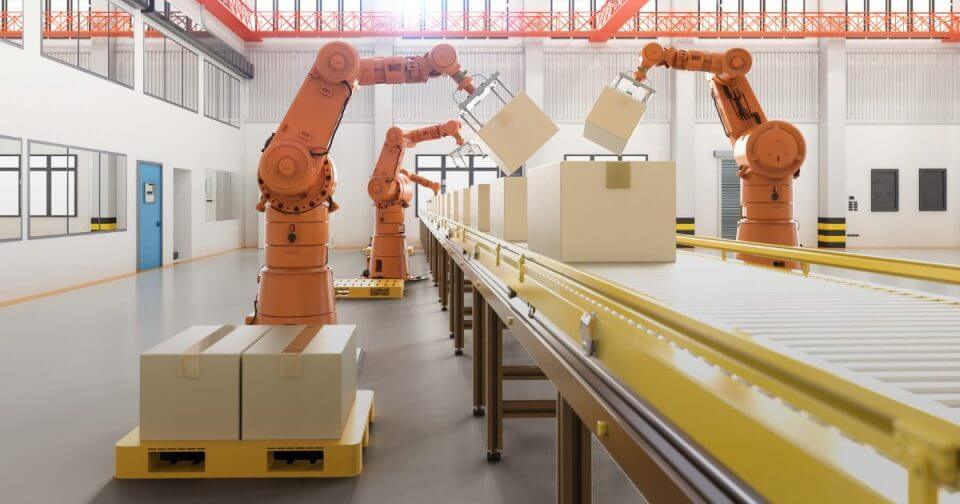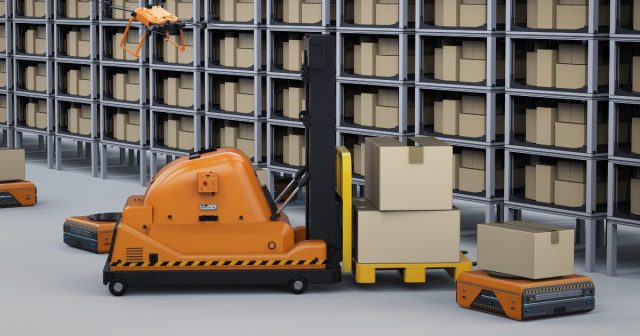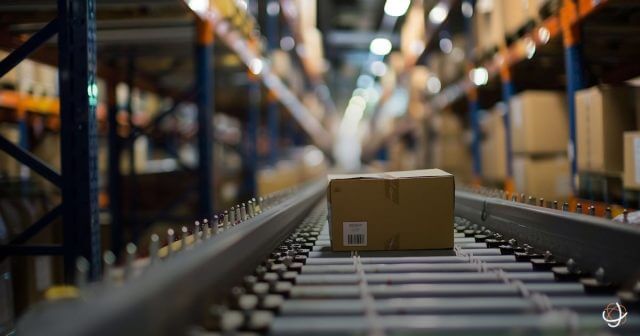
Facturation Électronique B2B en Belgique : Mise à jour sur le Mandat B2B de 2026 et la Réforme Fiscale
Le mandat B2B en Belgique entrera en vigueur le 1er janvier 2026, affectant la quasi-totalité des 1,2 million d’entreprises belges.…
Bona : bâtir l’excellence opérationnelle avec Solochain WMS Lire le cas client

Artificial Intelligence (AI) in warehouse management refers to systems that simulate human intelligence, allowing machines to perform tasks such as decision-making, problem-solving, and learning from experience. Machine Learning (ML), a subset of AI, involves algorithms that can analyze data, identify patterns, and make decisions with minimal human intervention. In the context of WMS, these technologies are used to streamline operations, optimize processes, and reduce the margin for error.
One of the most impactful applications of AI in WMS is in inventory management. AI-driven systems can predict future inventory needs with high accuracy by analyzing historical data and current trends. This predictive capability helps in maintaining optimal stock levels, thereby reducing the risks of overstocking or stockouts. Additionally, AI can automate replenishment processes, ensuring that inventory is always available when needed, which is critical for maintaining smooth operations and customer satisfaction.
AI significantly improves the efficiency of order picking, one of the most labor-intensive tasks in a warehouse. AI-powered systems can optimize picking routes by analyzing real-time data on order volumes and warehouse layouts. This reduces travel time within the warehouse and increases the speed of order fulfillment. AI can also integrate with voice-controlled picking systems, guiding workers through the picking process and further reducing the time required to complete orders.
Predictive maintenance is another area where AI shines. AI systems equipped with sensors can monitor the condition of warehouse equipment in real time. By analyzing this data, AI can predict when maintenance is needed, preventing unexpected breakdowns and reducing downtime. This proactive approach not only keeps operations running smoothly but also extends the lifespan of equipment, leading to cost savings.
AI is at the heart of the growing trend toward automation in warehouses. Autonomous mobile robots (AMRs) and other AI-driven robotics are increasingly being used to perform repetitive tasks such as transporting goods. These robots operate with minimal human intervention, speeding up processes, reducing labor costs, and improving safety in the warehouse environment.
Handling returns efficiently is crucial for maintaining customer satisfaction. AI can streamline the returns process by analyzing return patterns and automating the sorting and restocking of returned items. This reduces the time and labor required to process returns and helps reintegrate goods into inventory faster, which is essential for maintaining inventory accuracy.

The integration of AI into WMS offers numerous benefits that extend beyond basic operational improvements:
Despite its numerous benefits, integrating AI into WMS is not without challenges:
The role of AI and Machine Learning in modern WMS is transformative, driving unprecedented levels of efficiency, accuracy, and flexibility in warehouse operations. As AI technology continues to evolve, its integration into WMS will become increasingly vital for businesses looking to stay competitive in the dynamic logistics environment. By overcoming the challenges associated with AI implementation, companies can unlock new levels of operational excellence and customer satisfaction.

Le mandat B2B en Belgique entrera en vigueur le 1er janvier 2026, affectant la quasi-totalité des 1,2 million d’entreprises belges.…

L’intégration de la gestion d’entrepôts dans la chaîne d’approvisionnement est essentielle pour des opérations efficaces. Apprenez comment des solutions avancées telles que WMS et TMS relèvent les défis et améliorent les performances, avec des stratégies pour renforcer la résilience et répondre aux demandes changeantes des clients.

Apprenez comment les systèmes avancés de gestion de la chaîne d’approvisionnement améliorent l’efficacité grâce à l’automatisation, aux analyses prédictives et aux données en temps réel.

Travaillez avec notre équipe pour créer votre pile logicielle de chaîne d’approvisionnement idéale et l’adapter à vos besoins commerciaux uniques.